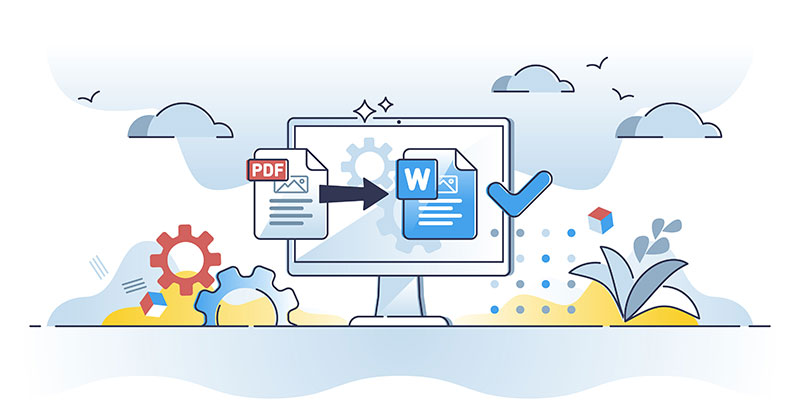Your App Idea Is Intellectual Property: How to Protect It

Apps are a core part of every business, helping you reach new customers, promote your brand, boost sales, and fill an untapped service in your industry.
By 2030, experts predict that the app market will grow to an unprecedented $259 billion, showing how essential they are becoming. Having a presence on the app store is non-negotiable now.
Unfortunately, developing an app isn’t enough anymore. You must protect your idea from beginning to end. After all, a stolen idea can harm any business and rob you of your online presence and brand awareness.
So, how do you protect your intellectual property nowadays? What tips or tools could be the difference in keeping your digital data your own?
This article will highlight the best ways to protect your app idea from thieves and hackers. You’ll learn simple but practical ways of guarding your ideas in law and improving your basic cybersecurity. That way, you’ll be free to develop great ideas without fearing for the worst.
Five ways to protect your app idea
With over 3,739 apps released daily on the Google Play Store, it’s no surprise that the app market is incredibly competitive. Whether you’re still developing your idea or actively coding the app, you must be confident your intellectual property is protected. Below are five key areas in which to do that:
1. Copyright the idea
Copyright is the backbone of intellectual property, protecting you as the owner and giving you the right to create, copy, and distribute your app and its coding.
Copyright is important because protecting the visual nature of your app and the source code will prevent copycats from trying to impersonate you or discredit your work. Ensure that employee contracts explicitly state that the copyright of produced work remains with you.
Although you can only copyright something tangible (and not, for example, an idea), you can start the copyright process as soon as you begin the development of your app. Do note that if accepted, it can still take between three to nine months for a copyright certificate to be issued. As such, it’s essential to apply as soon as possible.
2. Create and sign NDAs
Creating an app takes a lot of effort, expertise, and teamwork, and no doubt you’ll hire at least one or two external contractors or outside companies to help build your app and achieve your goals.
But to get the best possible outcome from their work, you need to be prepared to share sensitive business information with them. So, how do you protect your trade secrets during this time? By using non-disclosure agreements, known as NDAs.
NDAs prevent employees from sharing information with third parties, including after your app has been finished and released. You can be open with collaborators, sharing your business goals and customer data without compromising your integrity or revealing something that could hurt you.
Don’t worry—as impersonal and strict as NDAs might seem, they’ve become so common across the tech world that contractors should have no problem agreeing and adhering to their restrictions.
3. Improve your cybersecurity to keep hackers at bay
While copyright and NDAs are effective ways of using the law to protect your ideas, you also need to consider the threat of criminals who will have no issue breaking the rules to steal your app and ideas.
Opportunistic hackers are always looking for the best new ideas in tech, either to steal and create the idea themselves or to hold your intellectual property for ransom. As such, improving your cybersecurity to protect your data is essential.
One of the best ways of doing this is using a virtual private network (VPN), which encrypts internet connections and prevents anyone from monitoring your online activity.
This means the information you send and receive is scrambled, preventing hackers from knowing what you’re working on and with whom. Additionally, a VPN has other security benefits, including the ability to disguise your IP address from threats.
When creating their own app, many developers might wonder, ‘What is my IP address, and why does it matter?’ An IP address is a unique number that identifies your device online. By hiding this information, hackers cannot learn highly personal information about you and your company, including your location in the world, who your internet service provider is, and other information they might use to attack you.
4. Trademark the app name or logo
Thought of the perfect name for your app? Or a unique logo that will make a splash in the app store? Worried about someone stealing it once it’s released? Then, you need to work on trademarking it as soon as possible.
While copyright protects the rights of the person who creates the original work, such as the app’s source code, a trademark protects your business name, brand identity, slogans, and phrases signature to your app, as well as features, specific functions, and more.
Trademarking can give your app international protection against misuse and impersonation. Since so much of an app’s success can be attributed to strong brand awareness and a unique-looking logo, name, and tagline, protecting these is essential to your app’s future success.
5. Engage with marketplaces to ensure your app is protected
Once you’ve created your app, you must see what protections and protocols are in place in each marketplace you intend to distribute. The two leading marketplaces include:
- App Store: If you believe an app infringes on your copyright, the App Store has a dispute form where developers can submit their evidence of infringement, along with supporting documentation, to Apple Legal.
- Google Play Store: While the Play Store recommends contacting developers directly to resolve issues, you can send a trademark complaint to ensure your intellectual property remains safe.
Some app stores allow you to submit supporting copyright documentation alongside your application. This can be incredibly useful in protecting you from shady developers who abuse these policies and prevents you from being rejected over a potential property violation when you first upload your app.
Remember, developing an app idea is just as significant as safeguarding it from potential theft or infringement.
- Trending CSS-in-JS Libraries for Developers - May 16, 2024
- Integrating External JavaScript for Enhanced Functionality - May 15, 2024
- Learn about Technical Skills in the Tech Age: 6 Educational Tips - May 15, 2024








